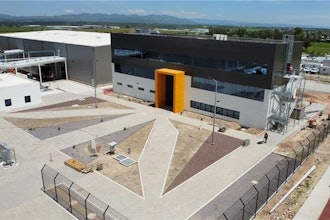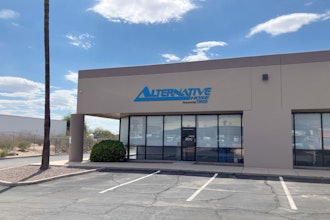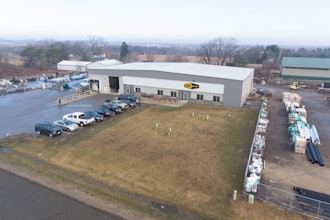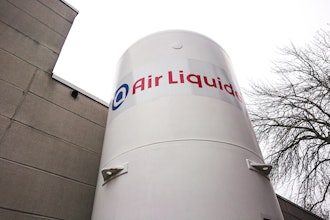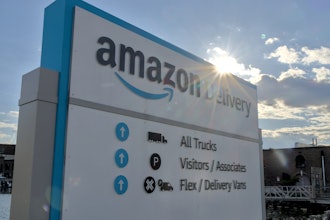BROUGHT TO YOU BY:
PAGE 2 | EPICOR
In today’s demanding and highly competitive
business environment, most distributors realize that
an ERP system can help streamline their business
processes, meet trading partner requirements, and
improve operational effi ciency.
However, many of them still operate without a well-functioning
ERP system, fearing high initial costs for software, hardware, and
supporting infrastructure; lengthy and complex implementation
projects; and the staffi ng necessary to implement and maintain
the systems.
But, in recent years, an increasing number of distributors have
embraced a cost-effective option that eliminates the need to
purchase, install, manage, and maintain ERP software systems
and the supporting hardware in-house.
SERVICE IN THE CLOUD
Today, distributors have become more confi dent than ever in the
security, cost-effectiveness, speed, and effi ciency provided by
cloud computing.
When cloud computing fi rst began to surface in a big way for the
industrial community during the latter part of the last decade,
distributors were among the skeptics who viewed it as yet
another technological incursion into their proprietary businesses.
An early fear was that using the Internet to move proprietary
company fi les, data, and customer records into a cloud-based
ERP potentially could expose the information to hackers or even
to direct competitors in the event of some computer glitch.
Yet, backed by heavy hitters like Amazon, Microsoft, and
Google, who were banking on the success of the Internet-based
pathway as the next step in the development of data collection,
information sharing, and technology, such fears have mostly
subsided as distributors increasingly view cloud-based ERP
as a huge competitive advantage that offers the fastest and most
sustainable way to turn modern technology innovation
into tangible business benefi ts with a powerful boost to the
bottom line.
In a cloud deployment, customers can license Software-as-
a-Service (SaaS) on a subscription basis, usually per user, per
month, or by number of transactions. Ongoing maintenance,
upgrades, and support for the software and infrastructure are
all the responsibility of the software vendor and are typically
included in the subscription fee.
Cloud computing removes upfront hardware costs, and the
pay-as-you-go SaaS model eliminates large initial layouts,
an attractive option for distributors seeking a cost-effective
alternative to on-premises technology maintained by internal staff
and updated by outside software providers.
It also provides a much more secure route for data protection by
maintaining a redundant set of fi les on the cloud to make sure
that, if tragedy strikes, all is not lost. Backing them up on site or
at an off-site physical location offers a false sense of security since
data fi les still are vulnerable to loss from fi re or natural disaster.
Cloud business software deployments typically can cost 25 to 40
percent less than in-house deployments, according to estimates
by Epicor Software Corp., a company that offers both cloud and
on-premises ERP options.
While on-premises ERP solutions offer a familiar and comforting
approach to a business-critical technology requirement, this is a
case where distributors that choose the status quo are, in reality,
exposing themselves to far more risk—and sacrifi cing much
bigger opportunities—than those that make the leap to
cloud-based ERP.
In a nutshell, through the cloud, distributors have less to do, and
more security and reliability to gain, giving them extra time to
focus on customers, employees, and other priorities.
A DOUBLE WIN
Not only have distributors begun to grasp the cost, speed, and
management benefi ts available with the cloud, they’ve also
placed much higher marks on ERP systems in general.
While not specifi cally mentioning the cloud by name, a brand
new study released in January 2019 showed that 67 percent
of 315 distributors and manufacturers surveyed rate their
ERP implementations as successful or very successful, with
only one characterizing their effort as a failure. The study was
commissioned by Ultra Consultants and conducted by Mint Jutras
in November.
A part of that success has to do with the growing use of SaaS,
a key element in cloud-based ERP since it removes the cost
of purchasing and continually upgrading software, thus taking
pressure off internal IT staff while maintaining a competitive
edge in the marketplace by always using the most up-to-
date technology.
That’s a win-win for both ERP in streamlining and building
effi ciency into operations and for cloud computing as the most
cost-effective, secure, and reliable platform.
PAGE 3 | EPICOR
It’s also a huge reversal from the early days of cloud development
when distributors and others, still wary over new competition
from e-commerce, considered the cloud to be additional
uncharted territory.
Although using software for decades to reduce labor costs,
manage data, monitor inventory, process transactions, and
arrange shipments, many B2B distributors—especially those in
the mid-size and smaller categories—often had been reluctant
to incorporate change into business processes that were
working well.
THE POWER OF SIMPLICITY AND MOBILITY
While on-premises deployments allow for storage of data on
servers located down the hall, it comes at the expense of the
local IT team and other resources. With cloud deployments, IT
could spend more time working on what’s next for the business
and the customers instead of trying to keep up with hardware
and software problems and upgrades.
Mobility also is a key
advantage of cloud-
based ERP. In-house ERP
systems often are limited
to individual facilities,
whereas cloud-based ERP is
seamlessly connected across
a company’s entire network.
Everyone sees the same
information and operates
according to one version of
the data. Collaboration is
faster and free of confusion,
which reduces complexity,
while improving business
performance.
What’s more, moving ERP to
the cloud allows distributors
to increase capacity
without additional software,
hardware, or IT personnel,
and to easily pull back if less
is needed.
The positive ripple effect
can be evidenced right
down to collaboration at
the department levels.
According to Aberdeen
research, 20 percent of best-
in-class organizations have
seen a marked improvement
in collaboration between
departments after adopting
a cloud solution.
Mark Barry, then marketing
content manager at
Aberdeen, in February 2017
identified cloud computing
as one of the “technology
influencers” for the supply
chain of 2030 with its impact
on how companies rethink
IT strategies, calling it
“the tool driving businesses
back to standard processes”
and enabling “integration
and connectivity as well as a
migration path for additional
functionality, without a
complete ‘rip and replace’
approach that often meant
trouble for many enterprise
software initiatives.”
FINDING THE RIGHT
ERP PROVIDER
Once the decision has been
made to implement a cloud-
based ERP system, the next—
and perhaps most important
step—is to find and secure
a software service provider
familiar with the distribution
business, the distributor’s
individual challenges and
markets, integration of
business processes, databases,
and customer needs.
That’s especially important
because, as with all
relatively new and successful
technology, cloud ERP has
drawn a host of new vendors
to the industry, some much
more skilled than others.
If the distributor is moving
from an existing format, it’s
also helpful to locate a vendor
with knowledge of both cloud
and locally maintained ERP
systems, so the move is handled without any business disruption.
Traditional ERP integration involving a variety of operating
software can cause numerous headaches. Cloud-based ERP
helps break down technology silos within a business, like the
management for orders placed over the phone, via eCommerce,
and orders placed via mobile devices.
Epicor Prophet 21, a specialized distribution management
system, brings together the broad range of functionality that
distributors require into one integrated solution, eliminating the
need for separate applications, spreadsheets, and workarounds.
It also helps guide users through new software technology to
experience the benefits of cloud-based ERP while avoiding the
headaches of a traditional upgrade or installation process.
Prophet 21 in the cloud is powered by Microsoft Azure, an open,
flexible, and enterprise-grade public cloud computing platform
noted for reliability, security, and scalability. With hundreds of
data centers around the world and millions of servers, Microsoft
Azure is the leading, most trusted public cloud platform for
the enterprise. Epicor is on the cusp of launching this full cloud
solution with Azure in order to leverage this proven foundation
to build and deploy enterprise business applications that enable
distribution businesses to adapt and grow.
Currently utilized customization or functionality also can be
retained, helping simplify the introduction for newcomers and
the transition for veteran staff, including sales personnel, who
9 Reasons to Retire
Homegrown ERP Software
The top reasons to weigh the
advantages of an outside ERP solution
over a homegrown system:
1. What happens if your IT director or
programmers leave the company?
2. Homegrown systems often
lack real-time and advanced data
capabilities and tend to contain limited
transactional history.
3. Legacy systems and data
warehouses may produce data
discrepancies, resulting in
duplicate work and potential
compatibility issues.
4. ERP companies conduct extensive
testing in real-life scenarios. A
homegrown system may work, but
competitors may be using much better
processes.
5. Technology is evolving at a rapid
pace, making it nearly impossible
for small IT shops to keep up with
competitive business needs.
6. Custom IT shops often don’t
understand systems architecture
leading employees to create
various workarounds.
7. In-house development can be much
more costly than it appears—far more
so than partnering with a leading
distribution management system.
8. A legacy system may be familiar to
longtime employees, but foreign to
new hires, which may affect utilization.
9. The homegrown option may not
“play well with others,” requiring
duplicate data entry or custom
development for eCommerce.
9 Questions for a
Potential ERP Vendor
To ensure the vendor has a strategic
vision for distribution-specific
technology, ask these questions:
1. What’s the roadmap for
this product?
2. How is development split between
innovation versus fixing bugs or
making incremental improvements?
3. What’s their cadence for releasing
new versions of the software
you’re considering?
4. What’s the vision for
business mobility?
5. Are you able to access business
information in systems outside of
the ERP?
6. Do they have business
applications that run on
mobile devices?
7. How malleable is the software to
your users’ specific needs?
8. Are they in the cloud? If not,
do they have a vision for moving
applications to the cloud?
9. How are they addressing
the changes brought on by the
Internet of Things (IoT) or artificial
intelligence (AI)?
PAGE 4 | EPICOR
are used to working with an on-premises ERP system and doing
things the same way for a long time.
Another benefit of cloud-based ERP is open access to employees
whenever and wherever they need it. Cloud’s mobility advantage
connects across a company’s entire network.
NOT AN ALL-OR-NOTHING LEAP
Still not convinced? The good news for distributors on the fence
about a full jump into a cloud system is that the mission can be
handled in stages and at a pace of their choosing, an option
offered exclusively by Epicor.
Thus, those using an on-premises ERP system can have the
unique flexibility to decide how much of their present software
they want to transfer to the cloud at a given time, beginning
slowly and moving forward only when comfortable and ready to
do so.
It also can ease distributor concerns over staff acceptance and
help bring around longtime employees who may be reluctant to
embrace change.
While major cost-savings, higher efficiency, improved productivity,
better inventory management, and significant boosts in bottom
line performance are common with cloud ERP, every company
faces unique business challenges.
To that end, engaging a provider like Epicor that offers both
on-premises and cloud ERP systems may present an easier
escape hatch since cloud-based ERP with SaaS is offered on a
subscription basis. Like turning in a leased vehicle at the end of
term, the distributor has an option to change, renew, or exit at
end of the cloud deal.
If a distributor is unsatisfied and chooses to revert to its former
ERP method, a provider handling both types of deployments
might ease the transition back within the framework of a single
software management company rather than searching for a
different provider not familiar with the original project.
The bottom line is that cloud-based ERP, which integrates a
multitude of complicated and diverse systems for instant access
by all users within a cost-effective, single shared framework,
not only boosts efficiency, productivity, and ultimately profit, it
appears to be a no-lose proposition.
In the highly competitive distribution sector, that’s money
in the bank.
Sky's the Limit for Cloud-Savvy Distributors
In today's demanding and highly competitive business environment, most distributors realize that an ERP system can help streamline their business processes, meet trading partner requirements, and improve operational efficiency. However, many of them still operate without a well-functioning ERP system, fearing high initial costs for software, hardware, and supporting infrastructure; lengthy and complex implementation projects; and the staffing necessary to implement and maintain the systems.
Latest in Home
Winsupply Adds North Texas Subsidiary
August 28, 2025
ABC Supply Acquires Mississippi Company
August 27, 2025












